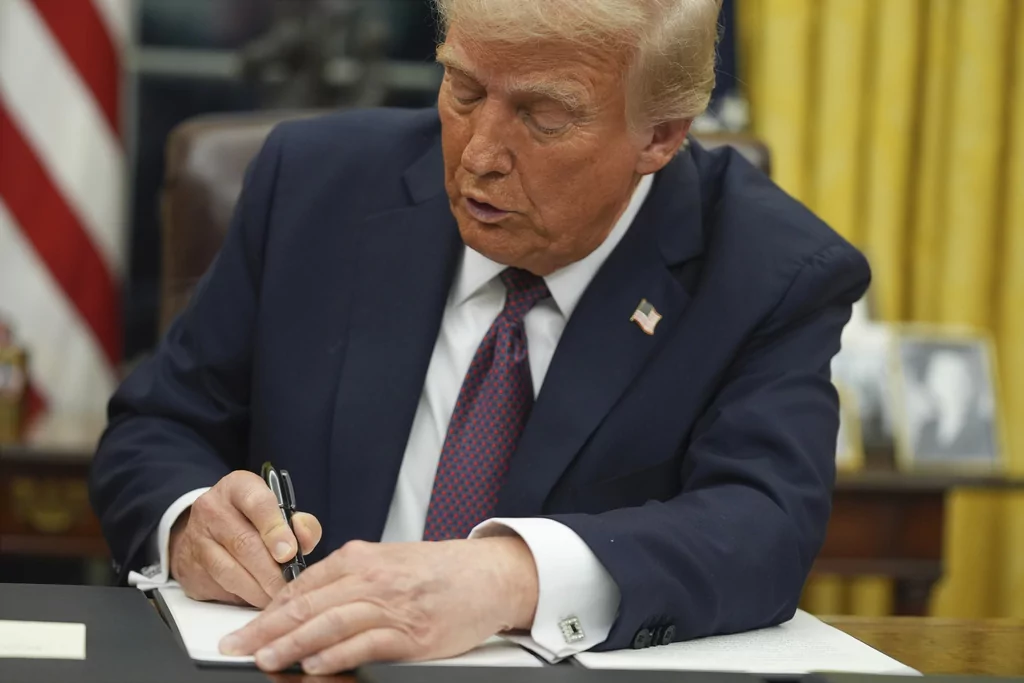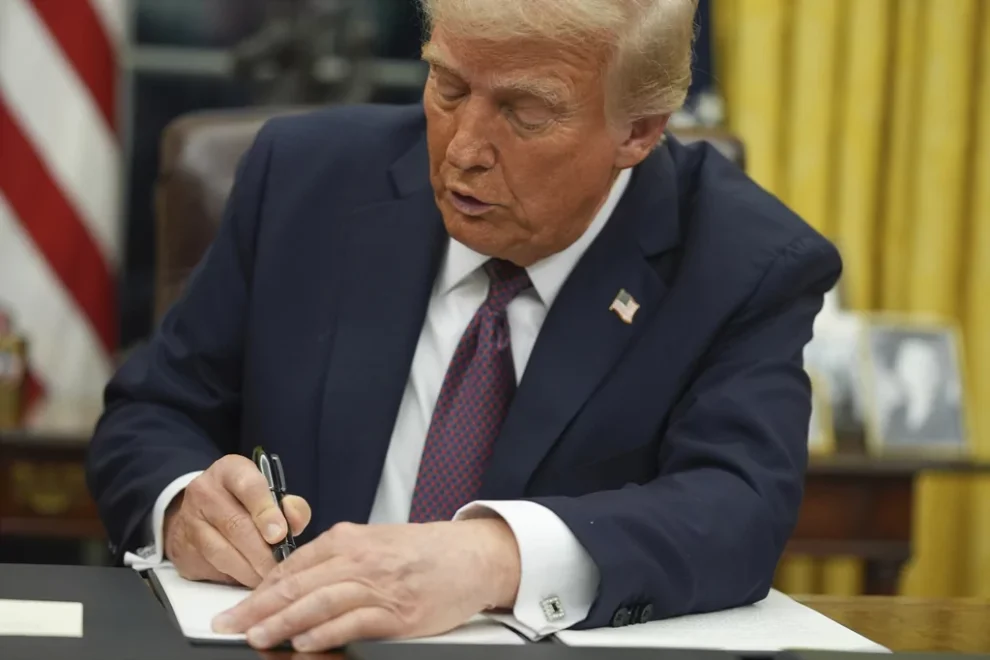President Donald Trump’s executive order challenging birthright citizenship is set to face its first significant legal test Thursday, as a federal judge in Seattle considers a request for a temporary restraining order filed by four Democrat-led states.
This hearing represents the first salvo in what is expected to be a prolonged challenge to the president’s controversial reinterpretation of the 14th Amendment. Reagan-appointed U.S. District Judge John Coughenour is overseeing the case and could decide whether to impose a temporary restraining order by the end of the hearing Thursday, which could complicate the birthright order’s expected Feb. 19 implementation date.

The executive order and its implications
The executive order, signed Monday as one of Trump’s first major directives, is meant to limit birthright citizenship to children born to at least one U.S. citizen or lawful permanent resident parent.
This redefinition of the 14th Amendment’s citizenship clause, which has been a cornerstone of Trump’s immigration agenda since his 2016 campaign, could strip citizenship from an estimated 150,000 children born annually to undocumented parents, according to the plaintiffs suing against the directive.
Attorneys general from Arizona, Oregon, Washington, and Illinois filed the Seattle lawsuit, arguing that the policy would create a “new underclass” of stateless children who would be denied fundamental rights, including voting and jury service. Altogether, 22 states across five different lawsuits have sued against the order.
“Absent a temporary restraining order, children born in the Plaintiff States will soon be rendered undocumented, subject to removal or detention, and many stateless,” the lawsuit filed in Washington reads.
Legal precedent and historical context
The 14th Amendment, ratified in 1868, guarantees citizenship to “all persons born or naturalized in the United States, and subject to the jurisdiction thereof.” This principle of jus soli, or right of the soil, was codified in the wake of the Civil War, repudiating the Supreme Court’s infamous decision in Dred Scott v. Sandford that African Americans could not be U.S. citizens.
In 1898, the Supreme Court reinforced birthright citizenship in United States v. Wong Kim Ark, ruling that the U.S.-born child of Chinese immigrants was a citizen, despite restrictive immigration laws such as the Chinese Exclusion Act.
Trump’s order, however, contends that the phrase “subject to the jurisdiction thereof” excludes children born to undocumented immigrants, framing the issue as a modern reinterpretation of the amendment.
Legal challenges multiply
In addition to the Seattle case, lawsuits have been filed in Maryland and elsewhere, including by nonprofit groups and undocumented pregnant women. The Maryland case will be heard via telephone on Thursday. Across the board, plaintiffs argue that Trump’s order would cause irreparable harm by denying basic rights and sowing instability for affected children.
While legal scholars are divided on the strength of Trump’s position, most agree that the litigation could land before the Supreme Court, creating the possibility of reshaping the legal framework for U.S. citizenship.
The legal debate hinges on the interpretation of the 14th Amendment’s jurisdiction clause, an area where judicial opinions and legal scholarship diverge.
Fifth Circuit Judge James Ho, who has expressed skepticism about birthright citizenship in cases of “invasion,” has remarked that the clause may not guarantee citizenship for children of undocumented immigrants in such circumstances.
“Birthright citizenship obviously doesn’t apply in case of war or invasion,” Ho said in a recent interview.
Manhattan Institute senior fellow Ilya Shapiro said the issue is undoubtedly complex and unsettled.
“The definition of ‘subject to the jurisdiction thereof’ has never been adjudicated, and there are arguments to be made on both sides,” Shapiro said.
CLICK HERE TO READ MORE FROM THE WASHINGTON EXAMINER
He emphasized that circumstances such as “birth tourism” and illegal entry were not considerations in 1868, further complicating the matter.
“So this will go to the Supreme Court, and they’ll ultimately have to resolve it,” Shapiro said.
























